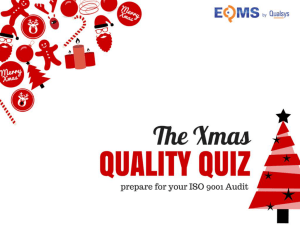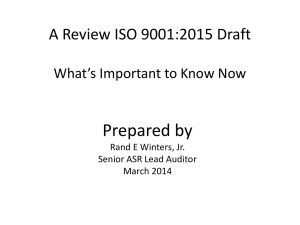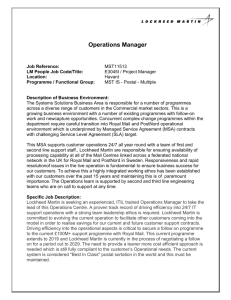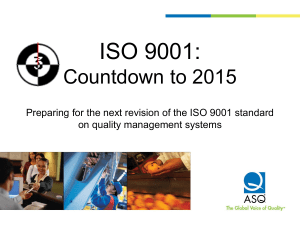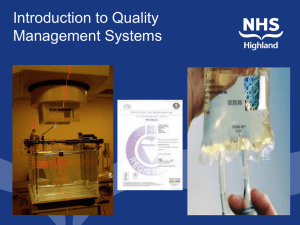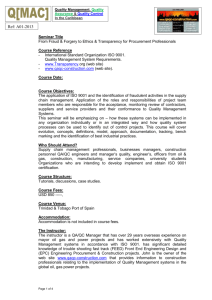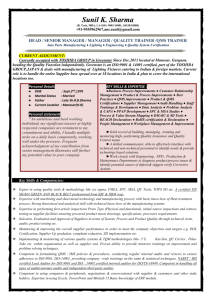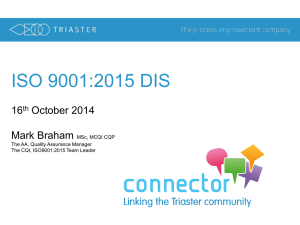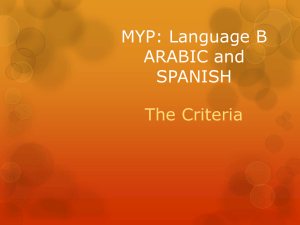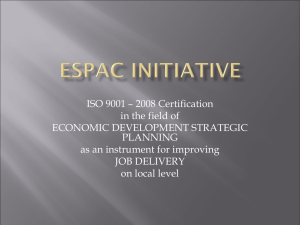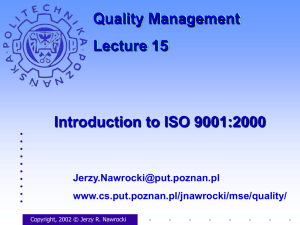Programme deve
advertisement
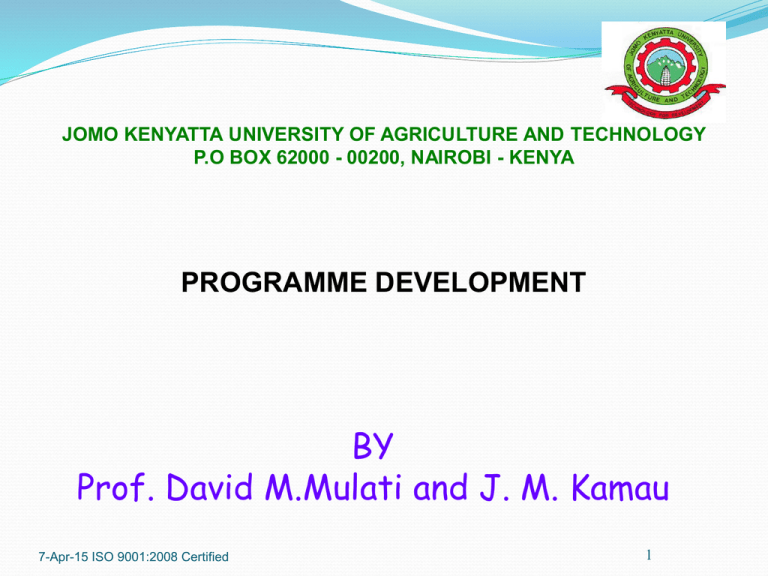
JOMO KENYATTA UNIVERSITY OF AGRICULTURE AND TECHNOLOGY P.O BOX 62000 - 00200, NAIROBI - KENYA PROGRAMME DEVELOPMENT BY Prof. David M.Mulati and J. M. Kamau 7-Apr-15 ISO 9001:2008 Certified 1 Introduction Academic programmes define a University Aspirations, uniqueness and niche the University occupies are reflected in the programmes the University offers Programme development shall be prefaced by clear understanding of: Constitution – to capture the national aspirations regarding higher education b) University Act – What has the University been legally mandated and obligated to deliver c) University strategic plan a) 7-Apr-15 Process of prgramme development The department is the academic home of the programme. Individuals are encouraged to come up with ideas for new programmes. The department shall set up curriculum development committee to synthesize the new ideas and develop the new programme. Involve DAQA. Care should be taken to ensure that old dead programmes are not renamed and presented as new programmes Follow CHE guide lines when developing new programmes 7-Apr-15 Process of prgramme development (cont.) The curriculum development committee shall submit the draft new programme to the COD for departmental board discussion and recommendations/approval. The department submits the draft to Faculty Board for approval and submission to Deans Committee after consultations with DAQA Dean submits the approved draft to Deans’ Committee. Deans’ committees discusses and gives recommendations to faculty for improvement. Faculty tables the Deans’ committee approved draft to Senate for approval 7-Apr-15 CHE Criterion for programme design The programme must be in line with the institution’s mission, forms part of institutional planning and resource allocation, meets national requirements, the needs of students and other stakeholders, and is intellectually credible. It is designed coherently and articulates well with other relevant programmes, where possible. In order to meet the criterion, the following is required at minimum: 7-Apr-15 Criterion for programme design (cont.) The programme is consonant with the institution’s mission and goals and is approved by the Senate. 2. Learning outcomes, degree of curriculum choice, teaching and learning methods, modes of delivery, learning materials and expected completion time cater for the learning needs of its target student intake. Competences expected of students who successfully complete the programme are made explicit. 1. 7-Apr-15 ISO 9001:2008 Certified Criterion for programme design (cont.) 3 .The programme maintains an appropriate balance of theoretical, practical and experiential knowledge and skills. It has sufficient disciplinary content and theoretical depth, at the appropriate level, to serve its educational purposes. 4. The design offers students learning and career pathways with opportunities for credit transfer within and across institutions, where possible. 7-Apr-15 ISO 9001:2008 Certified Criterion for programme design (cont.) 5. Modules and/or courses in the programme are coherently planned with regard to content, level, credits, purpose, outcomes, rules of combination, relative weight and delivery. 6. There is a DAQA policy for developing and evaluating learning materials and ensuring their alignment with the programme goals and underpinning philosophy. 7-Apr-15 ISO 9001:2008 Certified Criterion for programme design (cont.) 7. Programme outcomes meet national and/or regional labour market, knowledge or other socio-cultural needs. The requirements of professional bodies are taken into consideration, where applicable. Relevant stakeholders, including academic peers from outside the institution, and employers and professional bodies where applicable, are involved in the development of the programme. 7-Apr-15 ISO 9001:2008 Certified Thank you 7-Apr-15 ISO 9001:2008 Certified
